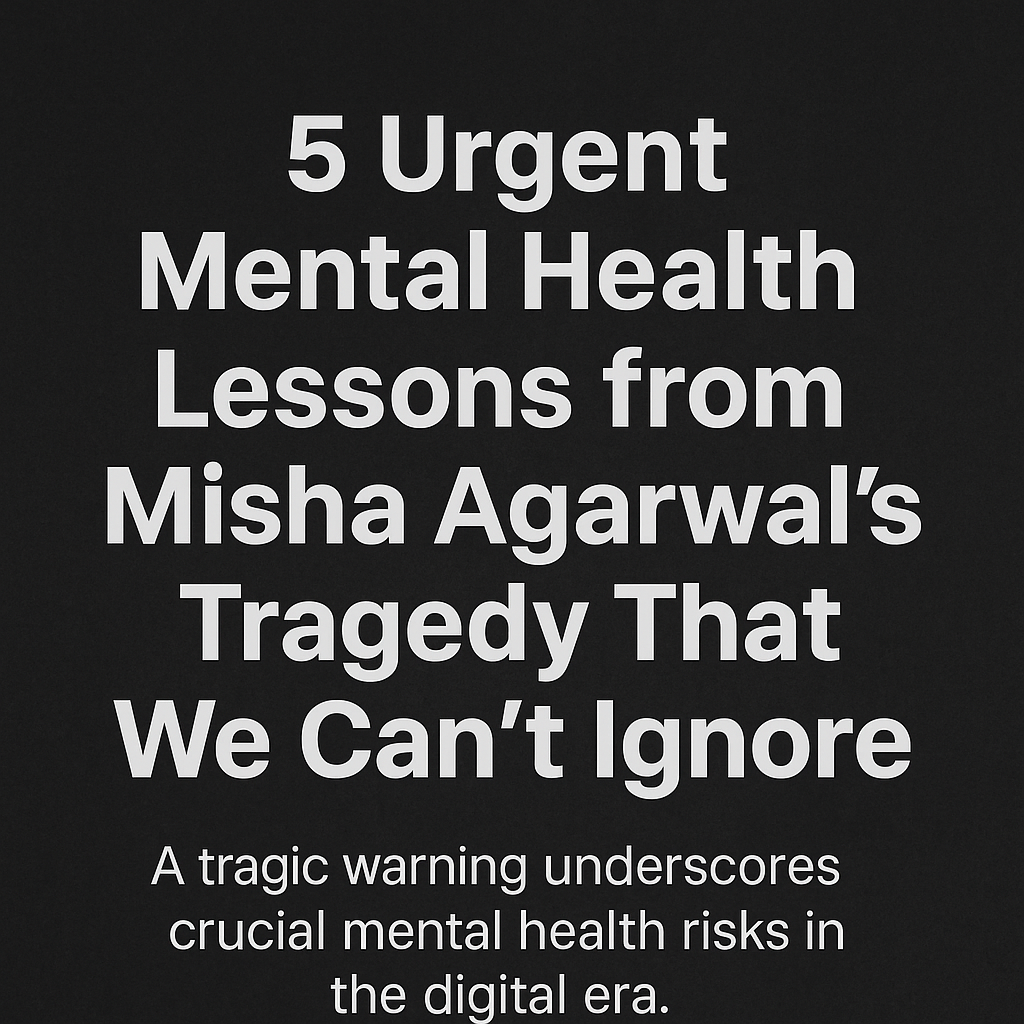“5 Alarming Truths About Social Media Suicide from Misha Agarwal’s Tragic End”
Introduction: A Digital Obsession Turned Fatal
n the surface, the life of content creator Misha Agarwal appeared glamorous—glowing selfies, thousands of followers, and digital fame. But behind the curated images was a silent battle that ended in social media suicide. On April 29, 2025, Misha died by suicide after experiencing a noticeable drop in her Instagram followers. Actress Taapsee Pannu reacted to her death with a heartbreaking statement, calling it a fear long harbored—the growing obsession with digital validation overpowering one’s will to live.
This incident casts a harrowing light on the fragile relationship between mental health and social media suicide, revealing how online pressures can silently push individuals toward tragic ends.
1. The Illusion of Digital Worth
The tragedy of Misha Agarwal reveals how dangerously intertwined self-worth and social media validation have become. When likes, comments, and followers start defining a person’s value, their emotional stability becomes precariously dependent on fluctuating metrics.
A sudden drop in followers may seem trivial to an outsider, but for content creators, it can feel like a personal rejection. The mental health repercussions of this are often underestimated. The loss may trigger feelings of failure, rejection, and hopelessness—especially when their entire identity is linked to public approval.
2. Living in a Comparison Trap
Content creators live in an ecosystem where comparison is constant. Someone is always getting more views, better engagement, or brand deals. This toxic cycle gradually erodes mental health, feeding anxiety, insecurity, and feelings of inadequacy.
Misha’s story is a painful reminder that beneath the polished façade of filters and hashtags lies a deep vulnerability. As content becomes increasingly performance-based, the pressure to stay relevant pushes many creators to the edge. It’s not just a digital career—it becomes a relentless psychological marathon.
3. Warning Signs We Must Not Miss
Suicide never happens without warning signs—persistent sadness, withdrawal, self-critical language, or sudden changes in behavior. But in digital professions, these signs often go unnoticed. Smiling photos and cheerful captions can mask internal despair.
Misha’s case emphasizes the urgent need for family, friends, and colleagues to look beyond the screen. Open conversations about emotional well-being, offering non-judgmental support, and gently probing for distress signals could save lives.
Let’s remember: vulnerability is not weakness—it’s a call for connection.
4. The Crucial Role of Mental Health Support
Mental health services are still stigmatized in India, particularly in public professions. Therapy, counseling, and psychiatric support should be normalized—not just after crises but as preventive tools.
Influencers and digital professionals face unique psychological challenges—hypervisibility, online trolling, performance anxiety. It’s critical to create tailored mental health programs for these communities. Tech platforms, too, must take responsibility by offering in-app emotional health resources and AI-powered early warning systems for users at risk.
5. Building a Healthier Digital Culture
The burden of change doesn’t rest solely on individuals. Society and digital platforms must collectively promote a healthier online environment.
- For users: Follow responsibly. Engage mindfully. Avoid hate comments.
- For creators: Set boundaries. Disconnect regularly. Value offline validation.
- For platforms: Enable support systems. Limit algorithmic pressure. Highlight mental wellness content.
Digital fame should not cost someone their life. We must rewrite the narrative: you are more than your metrics.
Conclusion: A Wake-Up Call We Can’t Scroll Past
Misha Agarwal’s death is not just another headline—it’s a stark warning that mental health must take center stage in our digital era. Behind every profile is a real person with fears, emotions, and needs. Let’s break the illusion that happiness equals popularity and begin fostering a world where mental well-being is more valued than online clout.
Let this tragedy be the catalyst for change, not just mourning.https://hinasiddiqui.com/services/individual-counselling-therapy/

